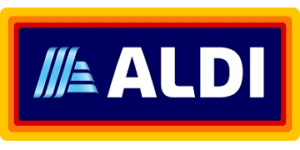Aldi puts customer data at risk by failing to upgrade to chip readers at checkout.

The discount supermarket chain Aldi could be putting customer’s account data at risk with outdated swipe readers. Police in Lower Pottsgrove, Pennsylvania reported last week that they’d found credit card skimmers in several Aldi stores. These devices sit on top of credit card terminals in checkout lines, but are completely camouflaged to the average person. The devices stores debit card numbers and PINs of unsuspecting shoppers.
What are credit card skimmers?
Credit card skimmers are a type of identity theft tool that affect purchases at brick and mortar stores. Cyber criminals place the skimmer on top of the credit card terminals in checkout lines. When you swipe your card, the credit card skimmer stores the debt card number and associated PIN. Then thieves download the data and have your account information. The average person doesn’t know their information has been stolen until the thieves use the account information to begin making fraudulent purchases.
Is there any way to protect against card skimming?
The EMV chip-enabled terminals don’t use the same technology that allows skimmers to steal card information using the magnetic strip. Only the old swipe terminals are at risk for skimming. This is one of the types of identity theft that EMV-chip cards are meant to stop. But retailers that still use swipe terminals put shoppers’ identities at risk.
Interestingly enough, many Aldi customers reported that their stores had received new chip readers. However, the staff taped over the chip reader part of the terminal, forcing customers to continue swiping.
“While Aldi payment terminals in the United States are capable of accepting more secure chip-based card transactions, the company has yet to enable chip payments,” explained security researcher Brian Krebs.
Who should be concerned about credit card skimmers?
This Aldi skimming story shows just how widespread identity theft is in the U.S. Lower Pottsgrove is not a major metropolitan area. In fact, it’s a small town with just 12,000 residents.
“People often think that identity theft techniques like credit card skimmers would only be a problem in urban areas,” says April Lewis-Parks, Financial Education Director for Consolidated Credit. “But identity theft doesn’t just occur in big cities. You can be at risk at any credit card swipe terminal, even if you live in a small town.”
It’s worth noting that skimmers don’t just work on checkout terminals either. Most gas stations have pay-at-the-pump terminals, which are vulnerable to skimming technology, too.
“If your bank or credit union offers fraud protection, sign up for it and respond promptly to any payment verification requests,” Lewis-Parks encourages. “These are usually automated calls, so you may be tempted to ignore them. But taking the few minutes to verify your purchases over the phone is the best way to catch fraud early. That limits your liability on unauthorized transactions.”
By law, if you report debit card theft within two business days of when it occurs, the liability limit is $50. If you report it within 60 days, the liability limit is $500. After that, you could be on the hook. That’s why it’s so crucial to respond to verification requests as quickly as possible.
“Mobile banking also gives you another way to help prevent debit card fraud,” Lewis-Parks adds. “You can check your transactions daily to make sure you recognize all the transactions. If you see something you don’t recognize, call your financial institution immediately.”
For more tips on how to protect against identity theft, visit Consolidated Credit’s Identity Theft Prevention Guide.